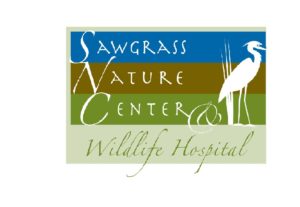
Safety tips when encountering wildlife – or an area known to have wildlife:
Alligators:
– Observe alligators from afar. Never approach an alligator, even if it seems to be injured.
– Never feed alligators – this makes them think it is okay to approach humans for food. Always remember, they are WILD animals.
– Do not let children and animals swim in lakes or ponds or walk along the edge of the water.
– Feel free to put a sign up in your yard stating there are alligators nearby. If you have an HOA, ask permission first. You can also ask them to put up signs as well.
– Do not harass or kill any alligators.
– Call the FWC at (866)392-4286 for nuisance alligators.
Burmese pythons:
– Never feed a python.
– Never attempt to handle and/or remove a python from an area without proper training.
– Report python sightings to the FWC. Note the location and take a photo if possible.
Opossums:
– These quiet, non-aggressive marsupials are rarely a threat.
– They rarely get into garbage cans or gardens, but don’t mind cleaning up the mess that was left.
– Their defense mechanism is to open their mouth and hiss to look more vicious than they actually are.
– If you see an opossum in your yard don’t worry. They are likely not staying very long.
– To avoid opossums entering your garbage can, use tight fitting lids.
– To avoid having them around your house, do not leave any pet food out overnight and close up any holes to ensure they do not make a den.
– Rabies is extremely rare for opossums to get, as their low body temperature makes it hard for the virus to survive.
– If you see an injured opossum in your yard, call animal control in your city or any nearby wildlife hospitals for help. Never attempt to pick up an injured animal without contacting a professional first.
Raccoons:
– Raccoons rarely attack cats or dogs, unless they feel threatened. Do not leave any pet food out overnight, as raccoons love food.
– To ensure they do not enter your garbage can, use a tight fitting lid.
– Raccoons are a threat to your pet’s health. Your pet can acquire fleas, ticks, or mites infestation.
– Raccoon feces and urine are carriers of diseases like Leptospirosis and raccoon roundworm, so never let your pet get close to a raccoon. If your pet gets infected, its dropping will become dangerous as well, exposing you and your family to the same health risks.
– Raccoons are carriers of rabies, so if you encounter a raccoon with aggressive behavior (especially during the daytime), do not attempt to interact with it. Call animal control in your city to have them remove the animal.
– Raccoons are wild animals, therefore almost always scared of humans. They prefer to avoid contact with us altogether.
– Raccoons are not a danger to your yard, but more of a nuisance. They greatest danger is to your pets.
– Mother raccoons are very protective of their babies. Do not attempt to pick up or remove baby raccoons from your yard or house. Call animal control in your city or any nearby wildlife hospitals for professional help.
